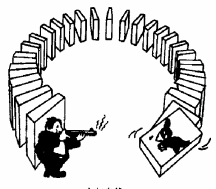题目内容
If your preschoolers turn up their noses at carrots or celery, a small reward like a sticker(贴画) for taking even a taste may help get them to eat previously disliked foods, a UK study said.
Though it might seem obvious that a reward could encourage young children to eat their vegetables, the idea is actually controversial, researchers wrote in the American Journal of Clinical Nutrition. That’s because some studies have shown that rewards can backfire and cause children to lose interest in foods they already liked, said Jane Wardle, a researcher at University College London who worked on the study. Verbal praise, such as “Brilliant! You’re a great vegetable taster”, did not work as well.
The study found that when parents gave their small children a sticker each time they took a “tiny taste” of a disliked vegetable, it gradually changed their attitudes. The children were also willing to eat more of the vegetables—either carrots, celery, cucumber, red pepper, cabbage or sugar snap peas—in laboratory taste tests, the study said.
Researchers randomly assigned (分派) 173 families to one of these groups. In one, parents used stickers to reward their children each time they took a tiny sample of a disliked vegetable. A second group of parents used verbal praise. The third group, where Parents used no special vegetable-promoting methods, served as a “control”.
Parents in the reward groups offered their children a taste of the “target” vegetable every day for 12 days. Soon after, children in the sticker group were giving higher ratings to the vegetables—and were willing to eat more in the research lab, going from an average of 5 grams at the start to about 10 grams after the 12-day experience. The turnaround(转机) also seemed to last, with preschoolers in the sticker group still willing to eat more of the once-disliked vegetable three months later.
Why didn’t the verbal praise work? Wardle said the parents’ words may have seemed “insincere” to their children.
1.The purpose of writing the passage is _______ .
A. to explain why children hate to eat vegetables
B. to present a proper way of verbal praise to parents
C. to show the procedure of an experiment on children’s diet
D. to introduce a practical method of making children eat vegetables
2.The underlined word “backfire” in Paragraph 2 probably means “_______”.
A. produce an unexpected result
B. shoot from behind the back
C. make a fire in the backyard
D. achieve what was planned
3.Which of the following statements is true according to the passage?
A. Most children are born to dislike carrots or celery.
C. Oral praise works quite well in encouraging children to eat vegetables.
B. Children in the sticker group will never lose interest in eating vegetables.
D. It remains a question whether rewarding is a good way to get children to eat vegetables.
4.What can we learn from the last paragraph?
A. Children are difficult to inspire.
B. Parents should give up verbal praise.
C. Parents should praise their children in a sincere tone.
D. Children like rewards, not verbal praise.
1.D
2.A
3.D
4.C
【解析】
试题解析:随着生活条件的改善,现在的孩子们对食物也越来越挑剔,很多孩子都不喜欢吃青菜,针对这一点,最近一项调查表示,一些小奖励就可以让小孩子吃下原本不想吃的食物。但是这个方法依然存在争议,因为可能让孩子对以前喜欢的东西丧失兴趣。
1. 考查主旨大意题。根据文章第一段“If your preschoolers turn up their noses at carrots or celery, a small reward like a sticker(贴画) for taking even a taste may help get them to eat previously disliked foods, a UK study said. ”可知:一项英国研究称,如果学龄前小孩不愿吃蔬菜,只要他们尝尝味道,就给他们一些小奖励,或许可以帮助小孩吃下原本不想吃的食物。由此推断,文章意在介绍让小孩吃蔬菜的方法。故选D。
2. 考查词义辨析题。A导致一个不期望的结果;B背后射击;C后院放火;D达到计划。根据第二段“That’s because some studies have shown that rewards can backfire and cause children to lose interest in foods they already liked, said Jane Wardle, a researcher at University College London who worked on the study. ”伦敦大学一个研究者说,一些研究表明奖励能够导致孩子们对他们以前喜欢的东西失去兴趣,这是家长始料未及的。由此猜出划线单词的含义,故选A。
3. 考查细节理解题。根据第二段第一句话“Though it might seem obvious that a reward could encourage young children to eat their vegetables, the idea is actually controversial, researchers wrote in the American Journal of Clinical Nutrition. ”学者在美国临床营养学期刊写道:虽然奖励明显可以让小孩子吃蔬菜,但这个主意确实存在争议。所以不能确定奖励是否是个好方法。故选D。
4. 考查细节理解题。根据文章最后一句话“Why didn’t the verbal praise work? Wardle said the parents’ words may have seemed “insincere” to their children. ”为什么口头奖励不起效,沃德尔说父母的话可能对孩子们来说太不真实了。所以父母在奖励孩子时,应该更加真诚一些。故选C。
考点:考查议论文阅读

 阅读快车系列答案
阅读快车系列答案假如你是学生会主席李华,为了增进学生之间的交流,学生会决定在网络上建立中外学生英文交流论坛,请你根据下面的要点提示介绍此论坛。
目的 | 要点 | 细节 |
提供交流平台 | 加强交流 | 结识朋友…… |
提供帮助 | 学习、生活…… | |
献计献策 | 学校发展、校园生活…… |
注意:1.词数100左右。开头已为你写好,不计入总词数。
2.可以适当增加细节,以使行文连贯。
